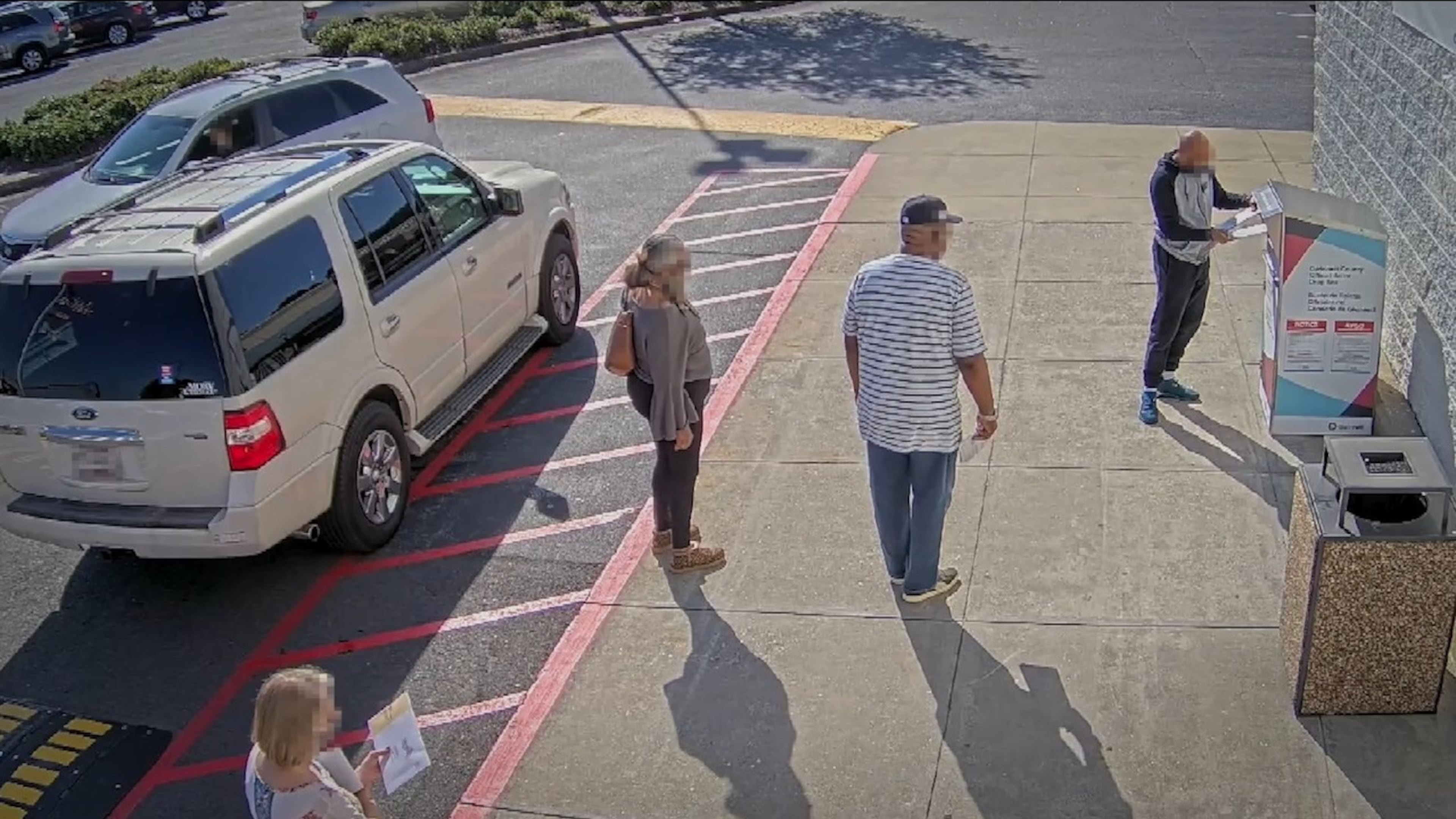Georgia voter sues over false election fraud accusation in ‘2000 Mules’

An auditor from Gwinnett County who was falsely accused of election fraud in the film “2000 Mules” is suing the movie’s makers, Dinesh D’Souza and True the Vote, alleging they lied to advance a phony narrative at his expense.
The lawsuit filed in federal court Wednesday said that Mark Andrews faced threats of violence and lives in fear since he was included in the movie without his knowledge or permission.
The movie shows Andrews, with his face blurred, as he deposits five ballots for himself and his family into a drop box before the 2020 presidential election. As the video rolls, D’Souza says: “What you are seeing is a crime. These are fraudulent votes.”
A state investigation found that Andrews followed Georgia law when he delivered ballots for his three adult children, his wife and himself. State law allows voters, family members or caregivers of disabled voters to drop off ballots. The State Election Board dismissed a complaint against Andrews in May.
“Defendants knew that their portrayals of Mr. Andrews were lies, as was the entire narrative of ‘2000 Mules,’ ” the lawsuit states. “But they have continued to peddle these lies in order to enrich themselves. As of the filing of this lawsuit, defendants’ social media accounts and website still promote the film using Mr. Andrews as an example of a criminal ‘mule.’ ”
None of the film’s allegations have been substantiated by law enforcement, and True the Vote has refused to comply with a subpoena from the State Election Board issued in April seeking documents, recordings and names of individuals involved.
“The organization is confident that the claims regarding True the Vote in this litigation will be found to be without merit,” said Brian Glicklich, a representative for True the Vote. D’Souza, a conservative filmmaker, didn’t respond to a request for comment.
The film spread the theory that 2,000 people in five states, including Georgia, collected and delivered multiple absentee ballots, a practice called “ballot harvesting.” State election investigators have debunked three cases that arose from the movie, and several more are pending.
“Undeterred by the lack of evidence of voter fraud, defendants resorted to contriving evidence of their own to push this false narrative,” the lawsuit states. “Defendants falsely claimed that cellphone geolocation data conclusively proved that people (the ‘mules’) made multiple trips to ballot boxes to illegally deposit ballots.”
The movie never shows video footage of anyone visiting more than one drop box in a day.
Andrews and his family, who live in Lawrenceville, feel intimidated to vote and worry that they could face physical harm from people who believe the film’s discredited conspiracy theory, according to the lawsuit.
“He will never again be able to vote without looking over his shoulder,” the lawsuit states.
The lawsuit is seeking an undefined amount of money based on claims of defamation, intimidation and invasion of privacy.



